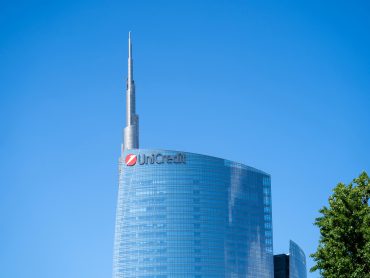
- Earnings
- European Banks
- Financial Services
UniCredit Raises €10.5B Profit Outlook, Ends BPM Bid
5 minute read

Italian bank UniCredit boosts profit outlook as strong quarterly earnings offset failed merger attempt with Banco BPM
Key Takeaways
- UniCredit raises profit forecast to €10.5 billion after withdrawing its €14.6 billion bid for Banco BPM, citing regulatory interference as a strategic drag on performance.
- Second-quarter net profit surges 25% to €3.3 billion ($3.87 billion), exceeding analyst expectations of €1.49 billion and driving share price gains of 3.3%.
- Italian government intervention derails merger using “golden power” rules that imposed strict conditions including Russian operations exit and regional lending commitments.
Introduction
UniCredit abandons its pursuit of Banco BPM and delivers a substantial earnings beat that sends shares higher. Italy’s second-largest bank withdraws its €14.6 billion all-share offer for Banco BPM after regulatory obstacles proved insurmountable, while simultaneously raising its full-year profit guidance following strong second-quarter results.
The decision marks a strategic pivot for UniCredit as it refocuses on organic growth and its German operations. CEO Andrea Orcel describes the abandoned bid as a “drag” that had distracted management from core value creation activities.
Key Developments
UniCredit reports second-quarter net profit of €3.3 billion including one-off items, representing a 25% increase year-on-year. Core net profit reaches €2.9 billion without exceptional items, while quarterly earnings of €1.92 billion significantly exceed analyst forecasts.
The bank simultaneously announces its withdrawal from the Banco BPM acquisition after Italy’s antitrust authority granted a 30-day reprieve. UniCredit originally proposed the €14.6 billion offer in July 2025 but faced immediate resistance from Rome’s “golden power” provisions.
Key performance metrics demonstrate operational strength with return on tangible equity reaching 24.1% and CET 1 capital ratio improving to 16.2%. Net interest income grows 6.2% year-on-year despite a 4.7% decline in total net revenues to €6 billion.
Market Impact
UniCredit shares gain 3.3% in early Wednesday trading following the earnings announcement and strategic clarification. The market responds positively to management’s decision to abandon the contentious merger and focus on operational execution.
Banco BPM’s market capitalization stands at €15.4 billion, slightly above the implied bid value, with minimal shareholder acceptance of just 0.5%. The limited uptake reflects investor skepticism about the deal’s viability under regulatory constraints.
The withdrawal removes uncertainty that had weighed on UniCredit’s valuation and capital allocation strategy. Analysts welcome the more disciplined approach to mergers and acquisitions in favor of organic growth initiatives.
Strategic Insights
UniCredit’s retreat from the Banco BPM deal highlights the ongoing challenges facing cross-border banking consolidation in Europe’s fragmented regulatory environment. Italy’s intervention using national security provisions creates precedent for political interference in sector mergers.
The bank now concentrates on its 28% stake in German lender Commerzbank as its primary growth avenue, though Berlin opposes a full takeover. This strategic shift emphasizes existing investments over new acquisitions.
UniCredit adopts what Orcel terms a “best-in-class transformation strategy” focused on digital banking, automation, and customer experience improvements. The approach aligns with broader European banking trends prioritizing technology investments and operational efficiency over scale through mergers.
Expert Opinions and Data
CEO Andrea Orcel emphasizes the strategic benefits of abandoning the merger pursuit. “We’ve drawn a line under the Banco BPM transaction; it had become a drag and a distraction,” he states in a CNBC interview, highlighting management’s priority shift toward value creation and shareholder returns.
Orcel explains the decision’s rationale by noting that UniCredit’s Italian operations generate quarterly profits equivalent to Banco BPM’s annual earnings. “This is about executing on our strategy, delivering on our targets, and leveraging our existing investments, including Commerzbank,” he adds.
Industry analysts describe the withdrawal as a “missed opportunity” for Italian banking sector consolidation while acknowledging the regulatory obstacles. The European Commission previously criticized Italy’s intervention as disproportionate, reflecting broader EU concerns about government interference in banking mergers.
Conclusion
UniCredit raises its full-year net profit guidance to €10.5 billion from €10 billion, with projections reaching €11 billion by 2027. The bank plans €9.5 billion in shareholder distributions this year, including at least €4.75 billion in cash dividends.
The strategic reset positions UniCredit to pursue organic growth while maintaining significant influence in European banking through its Commerzbank stake. Management’s focus shifts decisively toward operational execution and digital transformation rather than large-scale acquisitions, setting clear expectations for investors about the bank’s future direction.








